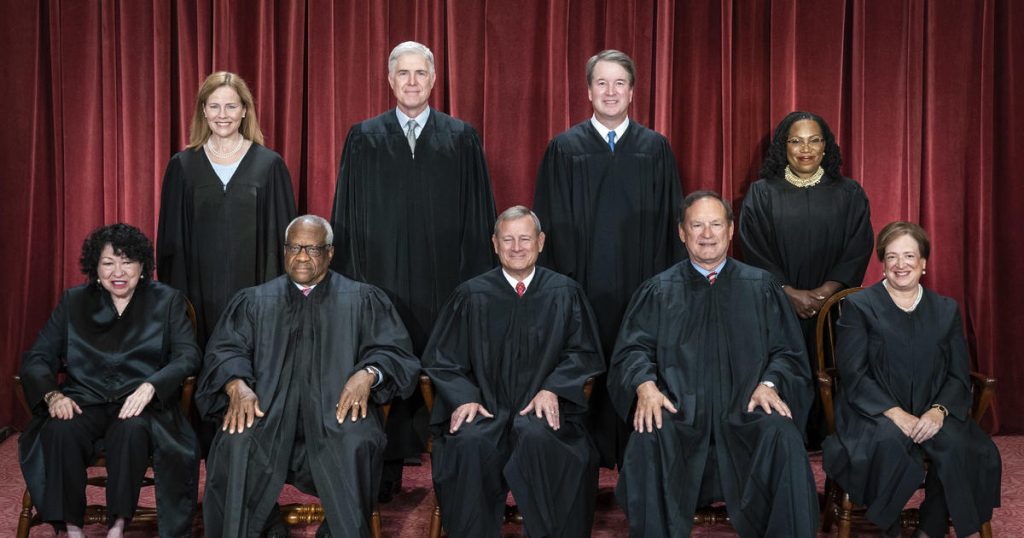President Biden has proposed a set of reforms for the Supreme Court, including setting term limits for justices and establishing enforceable ethics rules. These proposals come after the Supreme Court, which has a conservative majority, issued decisions on abortion, affirmative action, and federal regulatory power that have stirred controversy. The aim is to address concerns about the court’s impact on public confidence and transparency.
The proposed changes include an amendment called the No One is Above the Law Amendment, which clarifies that no president is immune from federal criminal indictment. Another proposal is to replace lifetime appointments with 18-year term limits for justices, with a new justice appointed every two years. The third reform is a binding code of conduct for the Supreme Court to ensure justices disclose gifts, refrain from political activity, and avoid conflicts of interest. These changes seek to bring accountability and regularity to the functioning of the nation’s highest court.
While President Biden’s reform proposals face significant hurdles in Congress, progressive groups are mobilizing to make reforming the Supreme Court a key issue in the upcoming elections. If Democrats were to gain control of both houses of Congress, they could potentially enact the changes put forth by the president. However, given the divided nature of Congress and the requirement for a constitutional amendment, the likelihood of these reforms being implemented in the near future is low.
President Biden’s decision to roll out these reform proposals comes at a critical juncture, signaling a shift in his stance on court reform. Concerns about ethics practices at the Supreme Court, such as Justice Clarence Thomas’ ties to a GOP donor and Justice Samuel Alito’s displays of controversial flags, have further fueled calls for reforms. The recent decisions by the court’s conservative majority on key issues like abortion and affirmative action have also added to the urgency of addressing concerns about the court’s integrity and independence.
The president’s plan for Supreme Court reform reflects a growing recognition of the need to ensure transparency, accountability, and public confidence in the judiciary. As the Supreme Court continues to issue landmark decisions with far-reaching consequences, there is a sense of urgency to address ethical lapses and structural deficiencies within the court. President Biden’s proposed reforms, while facing challenges in Congress, represent a significant step towards reinforcing the integrity and credibility of the nation’s highest court in the eyes of the American public.


